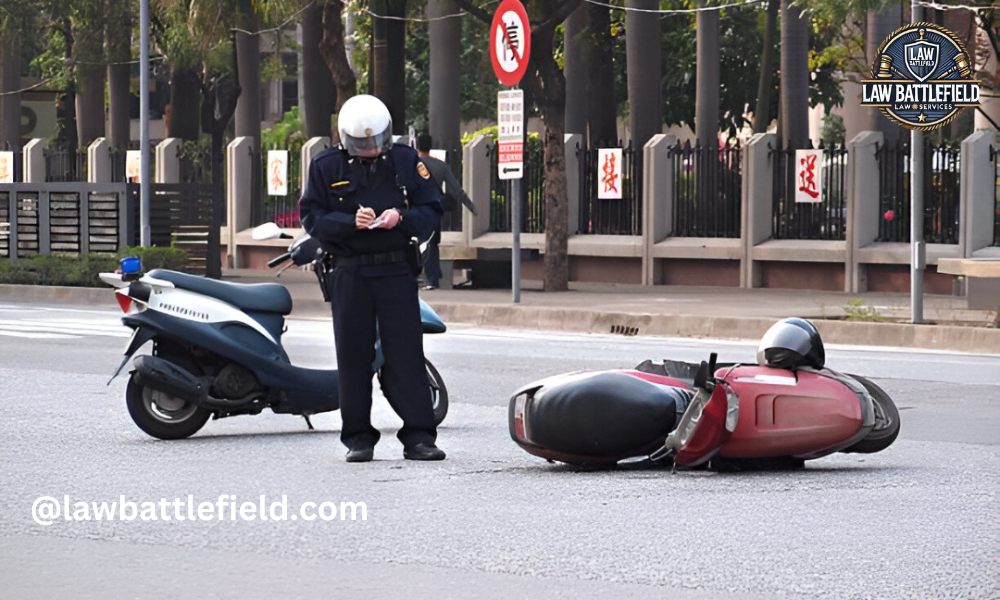Motorcycle accidents can lead to serious injuries and complex legal proceedings. Proving who was responsible helps victims get the compensation they need. If you’ve been involved in a motorcycle accident, this guide outlines the critical steps for proving fault in court, providing clear information for anyone going through this process.
Understanding Liability
Determining liability is the first step in a motorcycle accident case. Liability is the legal term for accountability. It means the law holds a specific person or party accountable for an accident. In many situations, the driver who acted negligently or recklessly is considered at fault. Identifying the responsible party makes your entire argument much stronger.
Gathering Evidence
Collecting evidence is vital in proving fault. The crash photos show exactly what happened. Capture details such as vehicle positions, road conditions, and any visible injuries. The accounts given by people who witnessed an event often prove essential. What someone saw right when it happened are the details that truly paint a picture of the crash and can prove who was careless. This is especially important for a lawyer, such as an L.A. motorcycle accident attorney, who will need every piece of information to build a strong case.
Obtaining Police Reports
A police report can serve as a crucial piece of evidence. It often contains an officer’s observations and any citations issued. Request a copy of the report as soon as possible. Often, this kind of record shows exactly how someone made a mistake or acted without proper concern.
Collecting Medical Records
Documentation of injuries is essential. Your medical files clearly show the physical harm from the crash. Ensure that all injuries are thoroughly documented by healthcare professionals. With these documents, you can clearly show that the accident caused your injuries. This direct proof helps your chances of getting paid.
Securing Expert Testimony
In some cases, expert testimony may be necessary. Crash investigators thoroughly check the scene to determine how the accident actually happened. Accidents often have puzzling details. But experts can clear up these confusing points, giving the plaintiff’s side the evidence it needs.
Understanding Traffic Laws And Regulations
Traffic laws are crucial in determining fault. Driving offenses like going too fast, running a red light, or not yielding can prove that someone was careless. Familiarize yourself with relevant laws that may apply to the accident situation. Showing that the other person broke the rules makes it much clearer that they’re responsible for what happened.
Grasping Insurance Company Involvement
Insurance companies play a significant role in accident claims. They look for who’s to blame. Then they review the claims. When you show them all the proof, it sways their decision about who is accountable. Bargain confidently and allow a lawyer to step in and protect your interests.
Legal Representation
Having legal representation can be advantageous. An experienced attorney can navigate the legal system effectively. Handling motorcycle wreck claims is their specialty. They know how to put together a rock-solid case that gets you the compensation you’re owed. A skilled lawyer often changes how a court case turns out.
Comparative Negligence
In some jurisdictions, the legal concept of comparative negligence may affect the case. Under this doctrine, both parties involved might end up sharing the blame for the crash. This one detail can completely alter the amount of compensation you claim. Even if partially at fault, compensation may still be possible, depending on the degree of responsibility.
Settlement vs. Trial
Deciding whether to settle or proceed to trial is a critical decision. Settlements can offer quicker resolutions. However, if a fair settlement isn’t possible, taking the case to trial might be necessary. Weigh up the pros and cons carefully, considering the strength of the evidence and potential outcomes.
Conclusion
Showing who’s at fault after a motorcycle crash demands strong evidence and knowing the law. People who get injured in accidents can build a solid case by collecting every piece of evidence, learning about local traffic laws, and bringing in a professional to explain things. Getting a lawyer and knowing about shared fault matters. You can get the money you need for your injuries and other losses if you handle your case smartly.
Was this article helpful? Check out more on Lawbattlefield.com
How To Find The Best Lawyer For Motorcycle Accident Pennbookcenter.com





